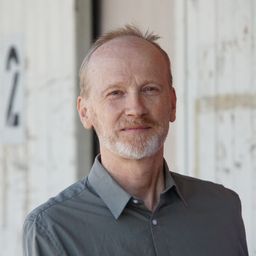Perception of the potential of industrial culture
My Session Status
What:
Paper
When:
11:30, Thursday 1 Sep 2022
(20 minutes)
Where:
UQAM, pavillon J.-A. De Sève (DS)
- DS-1580
| All over the world, committed monument conservationists point out cultural heritage sites endangered by decay or mishandling in so-called „Red Lists“. This contribution qualifies this approach positivly as an opportunity to understand neglected sites as unrealised potential, to recognise their specific possibilities and to point out ways to develop the sites accordingly for the benefit of society. In this meaning, industrial heritage sites can contribute to positive identification, to holistic regional and urban development and to sustainable economic and social development. The aim is to open the view to the potential of industrial heritage sites and thus release energies and motivations, synergies and development paths for preservation through reinterpretation, conversion and re-use. For this, it is necessary to organise unusual perspectives on the industrial heritage objects, to be inspired in an interdisciplinary way and to allow creativity. The change in dealing with industrial heritage thus begins with a change in perception. The method of the Percepción-Workshop® provides an innovative instrument for the discovery of the value and of ideas of an adequate and sustainable (re)utlización of spaces. This method is based on the pure acceptance of the situation at the location and the activation of the stakeholders involved. The moderation process based on these principles facilitates a creative communication between the old owner and the tourist industry, between the mayor and the cultural workers, between the monument authority and the investor. The experience teaches that perceptiveness plays a crucial role in exploring the potentials in such complex situations as industrial culture. The International Exhibition of Construction in Lausitz 2000-2010 (www.iba-see.de) is an international benchmark for the possibilites of intervention in post-mining landscapes. Numerous projects of recovering and reusing of industrial heritage in this rural context give a wide picture of all aspects according to this complex process, as the multidisciplinary, the landscape-design, the patrimonial, the economy, the ecology and biodiversity up to the social and communitary impact. Since 2021 the Berlin Centre for Industrial Heritage (www.industriekultur.berlin) is developing a „list of potentials of industrial heritage“ to improve the sustainability of industrial sites and and their significance for the urban developement of Berlin. This process points out the broad spectrum of potentials that industrial culture offers for the urben context: Monument value, image and „coolness“ factor, tourist valorisation, urban development significance, commercial exploitation, potential for the cultural and creative industries as well as for civil society initiatives, places for social and socio-political concerns, pioneer locations for ecological conversion and innovations. At the end, this practice leads to a wider understanding of all the interrelation between industry an culture. It discovers the complex relation between the apparently economic and technical nature of industry and our civil, social and cultural principles. This industrial-cultural investigation can also be helpful as a seismograph for our current and future industrial activity: What kind of anthropocene world are we shaping with our industries today? On which cultural values are they based? How much participation and interaction do they allow? What global principles do they take into account?Industrial culture has the potential to become an industrial ethic that adds a human, ecological and global perspective to the economy. |
